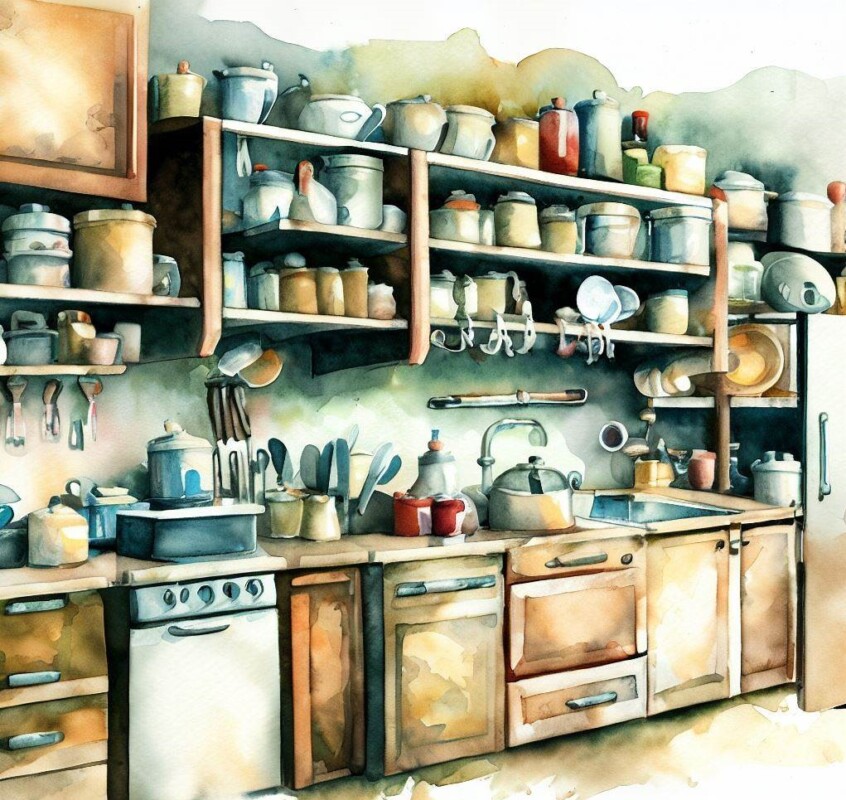Summary
For home sellers, bad smells ("housitosis") can be a deal breaker that deters buyers from making an offer. Smells can influence buyers' moods and decisions, so it's crucial to get rid of any unpleasant odors. The most common offenders are pet odors, smoke, musty odors, food odors, and dirty odors. Pet owners should clean their home thoroughly and remove traces of pet hair, dander, urine, or feces. Smokers should stop smoking inside and use vinegar or commercial smoke odor remover to wipe surfaces. Musty odors indicate moisture, mold or mildew, and should be remedied. Cooks should avoid cooking foods with strong smells, opt for mild or neutral smells, and use an exhaust fan or range hood. Dirty odors indicate poor hygiene and must be combated with regular cleaning. Scents that mask bad smells (candles, sprays, potpourri) can be overpowering, and sellers are advised to use natural methods to freshen up their home. By eliminating bad smells, home sellers can increase their chances of selling their home faster and for a better price.
When you are selling your home, you want to make a good impression on potential buyers. You want them to see your home as a place where they can live comfortably and happily. You want them to fall in love with your home and make an offer.
But sometimes, even if your home looks great, there is something that can ruin your chances of selling: bad smells, or “housitosis.”
Smells Are Powerful
They can evoke memories, emotions, and associations. They can also influence our mood, behavior, and decisions. And when it comes to buying a home, smells can make or break a deal.
According to a survey by Realtor.com , 87% of buyers said that the smell of a home was important to them, and 44% said they would be less likely to buy a home if it smelled bad. Some buyers even said they would walk away from a home if it smelled unpleasant.
So what are the smells that drive home buyers away? And how can you get rid of them? Here are some of the most common offenders and some tips on how to fix them.
Pet Odors
We love our furry friends, but not everyone shares our affection for them. Some buyers may be allergic to pets, or simply don’t like the smell of animals in a home. Pet odors can come from various sources, such as litter boxes, dog beds, carpets, furniture, or accidents on the floor.
To get rid of pet odors, you need to clean your home thoroughly and remove any traces of pet hair, dander, urine, or feces. Vacuum all the surfaces where your pet likes to hang out, and use a pet odor eliminator spray or powder on carpets and furniture. Wash your pet’s bedding regularly, and keep the litter box clean and out of sight. If the smell is still ingrained in your home, you may need to hire a professional carpet cleaner or an odor removal service.
Smoke
Smoke is one of the hardest smells to get rid of, and one of the most likely to turn buyers away. Whether it’s from cigarettes, cigars, or other sources, smoke can linger in the air, on the walls, on the curtains, and on the furniture. Smoke can also stain and damage your home’s surfaces and fabrics, and pose health risks to buyers.
To get rid of smoke smell, you need to stop smoking inside your home and air it out as much as possible. Open the windows, use fans, and change the air filters. You also need to clean your home thoroughly and remove any ash, tar, or nicotine residue. Use a vinegar solution or a commercial smoke odor remover to wipe down the walls, ceilings, floors, and windows. Wash or dry clean your curtains, bedding, and upholstery. If the smell is still persistent, you may need to repaint your walls or replace your carpets.
Musty Odors
Musty odors are usually a sign of moisture problems, mold, or mildew in your home. These can be caused by leaks, floods, poor ventilation, or high humidity. Musty odors can make your home feel damp, dirty, and unhealthy. They can also indicate structural issues that may deter buyers.
To get rid of musty odors, you need to find and fix the source of the moisture problem. Check for any leaks in your roof, pipes, or appliances, and repair them as soon as possible. Use a dehumidifier or an air conditioner to reduce the humidity level in your home.
Ventilate your home well, especially in areas that tend to get damp, such as bathrooms, basements, or attics. Clean any mold or mildew that you find with bleach or a commercial mold remover. If the problem is severe, you may need to hire a professional mold remediation service.
Food Odors
Food odors can be pleasant or unpleasant, depending on what you cook and who smells it. Some foods have strong smells that can linger in your home for hours or days after you cook them. These include foods with garlic, onion, curry, fish, cabbage, cheese, or other spices. While you may enjoy these smells, some buyers may not. They may associate them with bad hygiene, poor taste, or cultural differences.
To get rid of food odors, you need to avoid cooking foods with strong smells while your home is on the market. Instead, opt for foods that have mild or neutral smells, such as chicken, rice, pasta, or vegetables.
You also need to ventilate your kitchen well while you cook, and clean up any spills or splatters right away. Use an exhaust fan, a range hood, or an air purifier to remove any cooking odors from the air. You can also use baking soda, vinegar, lemon, or coffee grounds to absorb or mask any lingering smells.
Dirty Odors
Dirty odors are the result of poor housekeeping and lack of hygiene. They can come from various sources, such as garbage, laundry, dishes, toilets, drains, or shoes. Dirty odors can make your home feel unclean, uninviting, and unsanitary. They can also suggest that you don’t take good care of your home or yourself.
To get rid of dirty odors, you need to clean your home regularly and thoroughly. Empty your trash cans often, and keep them in a closed area. Wash your dishes as soon as you use them, and don’t leave them in the sink or the dishwasher.
Do your laundry frequently, and don’t let it pile up in the hamper or the floor. Clean your bathrooms and toilets well, and use a toilet bowl cleaner or a deodorizer. Flush your drains with hot water and vinegar or baking soda to prevent clogs and odors. Keep your shoes in a closet or a shoe rack, and spray them with a shoe deodorizer if needed.
Artificial Scents
Artificial scents are the ones that you use to mask or cover up other smells in your home. These include air fresheners, candles, plug-ins, sprays, diffusers, or potpourri. While you may think that these scents make your home smell better, some buyers may disagree. Artificial scents can be overpowering, irritating, or allergic to some people. They can also make buyers suspicious that you are trying to hide something.
To get rid of artificial scents, you need to stop using them while your home is on the market. Instead of masking other smells, try to eliminate them at the source. Use natural methods to freshen up your home, such as opening the windows, baking cookies, boiling cinnamon sticks, or placing fresh flowers. If you do use any artificial scents, make sure they are subtle, pleasant, and appropriate for the season.
Conclusion
The way your home smells can have a big impact on how buyers perceive it and whether they want to buy it. By getting rid of any bad smells and creating a fresh and clean atmosphere, you can increase your chances of selling your home faster and for a better price.

